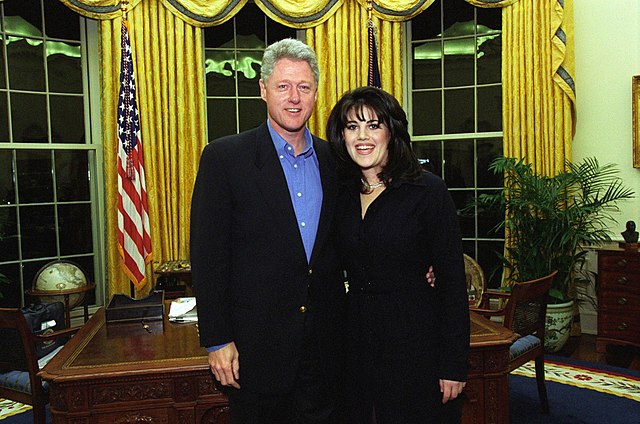Authors:
Historic Era: Era 10: Contemporary United States (1968 to the present)
Historic Theme:
Subject:
February/March 2021 | Volume 66, Issue 2


Authors:
Historic Era: Era 10: Contemporary United States (1968 to the present)
Historic Theme:
Subject:
February/March 2021 | Volume 66, Issue 2

By the 1990s, the “golden age” of presidential television had ended. While presidents since Dwight D. Eisenhower had enjoyed the ability to address the majority of the American public by appearing on the three commercial networks, William J. Clinton, known popularly as Bill Clinton, faced a very different media landscape as President. The number of households subscribing to cable television grew from 6 percent in 1969 to 68 percent by the end of the twentieth century. After CNN launched the model of twenty-four-hour news in 1980, its success inspired even more specialized news programming with competing all-news channel MSNBC and then Fox News coming on the scene in 1996.
Rather than simply reporting official statements from Clinton’s administration, a new group of press commentators, known as the “punditocracy,” spent hours examining behind-the-scenes White House operations.
Clinton frequently used this environment to his advantage by carefully cultivating his celebrity through appearances on CNN, MTV, and other outlets. But the media’s focus on Clinton’s personal life, as well as his partisan opponents’ determination to bring his administration under investigation by any available means as a political tactic, created a presidency under siege and consumed by scandals—some serious, others trivial.
The inclination to try to turn a president’s personal transgressions into breaches of law reached a peak during the Monica Lewinsky scandal, one that ultimately resulted in a House vote to impeach a president for only the second time in history. Yet while the Impeachment Inquiry revealed that the President had lied and committed marital infidelity, it never proved that he had committed a “high crime” that warranted his removal from office.
Whitewater
Having seen Colorado Senator Gary W. Hart’s presidential campaign derailed in 1988 by accusations of adultery, Clinton understood that issues he had skirted in Arkansas—notably marital infidelity—could derail his national campaign, so his War Room kept opposition files on potential accusers and prepared to discredit them quickly. This strategy succeeded with regard to accusations of the President’s affair with Gennifer Flowers during his Arkansas governorship.
But, during his campaign and early presidency, Clinton encountered unexpected questions about Hillary Clinton’s legal career and their joint Arkansas real estate investments that tangled the President in yet more difficulties.
In March 1992, just after the War Room fought through the Flowers situation and questions of draft dodging, a New York Times article raised a question about the relationship between the Clintons and their friends and business partners from Arkansas James and Susan McDougal. At issue was a 1978 business deal in which the Clintons and the McDougals purchased real estate in the Ozarks called the Whitewater Development. Available records showed that the Clintons stood to benefit from their investment but risked very little